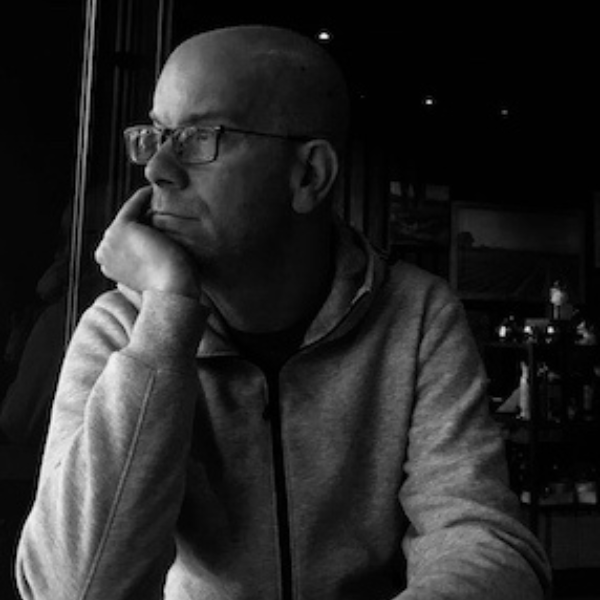Robert Browning, Student

My practicum experience made things real and showed that I can do the work of an archivist.
What makes an archivist? While it seems as though some people are born with an innate instinct to catalog and collect, others follow a winding path of career twists and turns to eventually find their way to the profession. For Wayne State University School of Information Sciences student Robert Browning, it was a bit of both.
“I’ve gone in several directions in my life, but I’ve always collected music, and I have a large collection of more than 1,000 books,” said Browning. “When I was in high school, I remember my parents would get books about occupations. I was interested in history; I still am. One of the books was about history-related careers, and I remember seeing ‘archivist’ listed and thinking that it would be interesting.”
Browning, who received a bachelor’s in Asian studies (Chinese) from Wayne State in 2009, spent more than a decade working as an English and social studies teacher in China.
“My experience in China further drew me to the archival field,” he said. “I was struck by the lack of, or inaccessibility of, information for various political reasons and the way the government shaped the narrative of how history is remembered. I became interested in learning about and saving the stories that added to the narrative of the individuals of that country.”
After returning to the United States, Browning enrolled in the School of Information Sciences and expects to graduate in August 2023 with a master of library and information science (MLIS) and a graduate certificate in archival administration.
Since starting the program, Browning has sought out experiences that provide hands-on learning opportunities. He has participated in the archival administration’s Alternative Spring Break, a competitive program in which chosen applicants are paired with one of the country’s premier information organizations for a weeklong internship that aligns with the student’s area of interest.
Browning was also selected as the first recipient of the María Gonzalez Memorial Scholarship, which was created in 2021 in honor of former faculty member María Gonzalez. The scholarship provides archival students the opportunity to work on the collections of underrepresented communities at the university’s Walter P. Reuther Library, Archives of Labor and Urban Affairs.
“It gave a tangible experience of how processing a collection works,” said Browning, who processed 10 boxes of materials for the Detroit-based Heartline organization. “Many classes are theory based and can be a bit abstract. This experience made things real and showed that I can do the work of an archivist.”
Browning was also able to incorporate his experiences in China into his practicum internship at the Walter P. Reuther Library, where he is collecting COVID-based oral histories from people living in Wuhan during the first pandemic-related lockdowns in early 2020. He will continue to transcribe the interviews and prepare the collection until he graduates in 2023.
In addition to his program-related experience, Browning is an archival volunteer for the Detroit Sound Conservancy and is past president of the Wayne State student chapter of the National Digital Stewardship Alliance. He also attended the 2022 Summer Educational Institute (SEI), a joint project of the Art Libraries Society of North America and the Visual Resources Association Foundation. The SEI curriculum presents an introduction to and overview of the digital life cycle taught by experts in the field. Browning and fellow MLIS student Amber Lee Carnahan attended SEI through a sponsorship provided by SIS Associate Professor Joan Beaudoin.
“The Summer Educational Institute provided a good opportunity to reinforce things I’d learned in class, and to learn new things outside of the classroom while also meeting and networking with other information professionals,” Browning said.
Upon graduation, Browning hopes to become a processing archivist, ideally working with material related to music and sound collections or oral histories. He encourages students to get involved and gain experience outside of the classroom.
“My advice would be to use the coursework as a steppingstone to other projects,” he said. “Join a student organization, volunteer, look for internships and scholarships, and develop relationships with faculty and advisors to make the most of your time in the program.”